acid
Common Drug Myths Debunked – Cannadelics
Published
1 year agoon
By
admin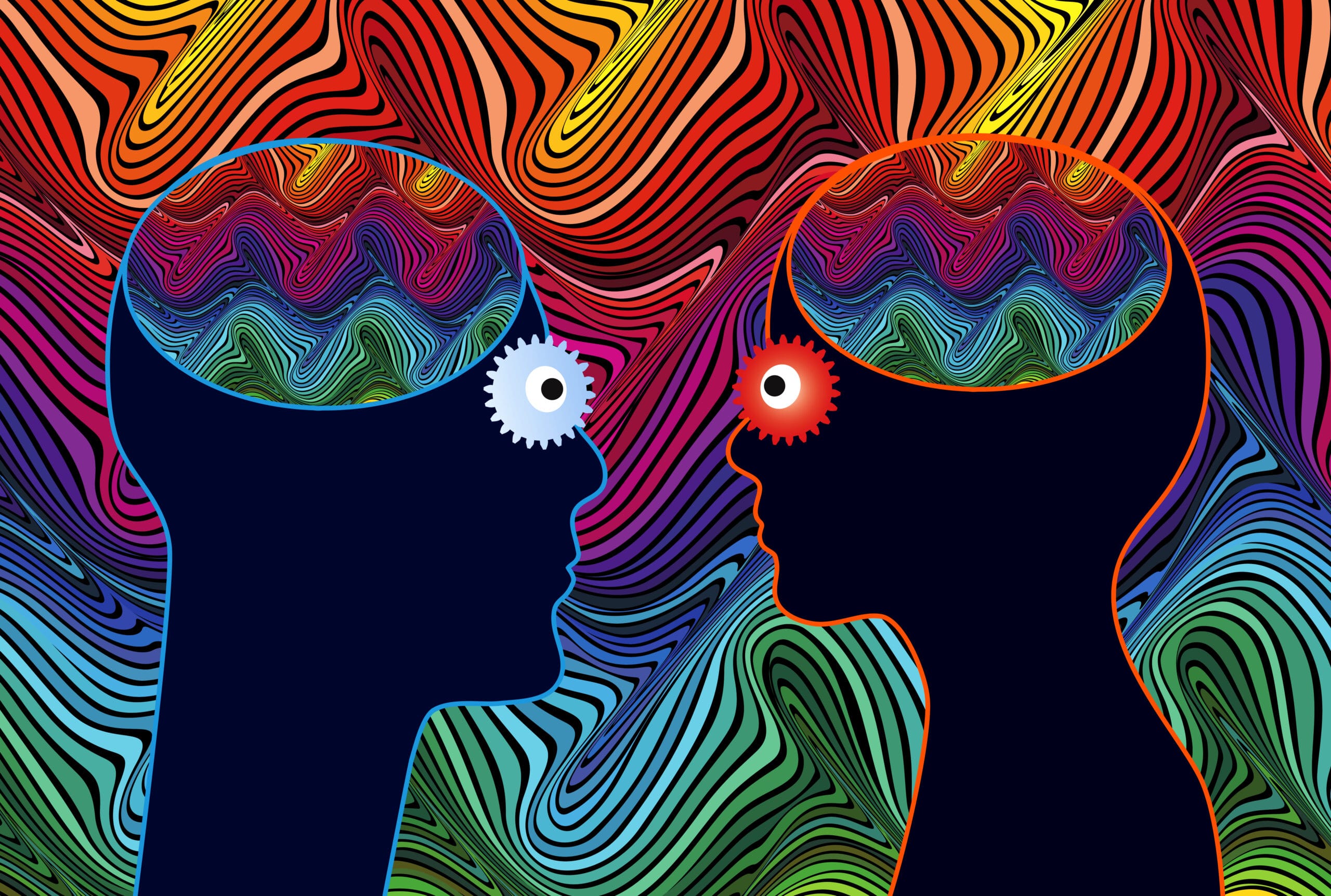
Drug myths have been around since people started using drugs. And I’m not talking about the kind of myths you hear during red ribbon week at school, but rather, the common fallacies that people who actually use drugs spread amongst themselves. Have you ever heard that LSD is forever stored in your spinal cord? Or that using it too many times can have you declared legally insane? How about the one where smoking too much pot will make you grow man boobs? Growing up, I’ve heard all of these and more, so let’s debunk some of the most common misconceptions about drug use.
Urban legends
An urban legend is a type of story or folklore the consists of various claims that are circulated as true. Often, it’s tales of something that has happened to a distant relative, or a “friend of a friend”, or some other random acquaintance, and they often contain a combination of scary, humorous, embarrassing, or cautionary elements.
Over the years, many misconceptions and urban legends about drugs have made the rounds, some of them dating back all the way to the 1960s that are still alive and well among today’s youth. And from what I’ve found on reddit, and when asking friends of mine, they’re pretty much universal in every state, even people in other countries have heard the same ones. These stories are generally related to long term side effects and adulterants.
Although they can be fun, and sometimes downright laughable, the real-life problem with these tall tales is that despite how ridiculous they might sound, they are often repeated by organizations and politicians who oppose sensible drug reform, and the general public believes them! And most of them are about psychedelics and cannabis. This causes the true effects of these substances to be wildly misunderstood.
LSD remains in your spinal cord forever
I’ve been using psychedelics since I was thirteen years old, and acid is definitely one of the drugs that has a lot of lore surrounding it. Something I heard quite often in my younger years was that if you take LSD, it will remain in your spinal cord forever, and if you crack your back too hard to have suffer from a back injury, it will send you into a sudden and terrifying trip. This is 100 percent false. When used, LSD travels through the bloodstream and is rapidly metabolized into inactive compounds. And, like most drugs, it’s water soluble so it gets out of your system rather quickly, usually in about 1-4 days.
Smoking weed can lead to the development of “man boobs”
This one has always made me giggle, and who knows, maybe it successfully scared some boys into not trying weed too early. Either way, this rumor originated from some older studies on THC that found it can lead to increased levels of estrogen in the body – although these studies have been mostly debunked over the years. Although some people in the medical community still like to promote the link between cannabis use and gynecomastia, the fact is, there is no definitive evidence that this connection exists.
Ketamine is a horse tranquilizer
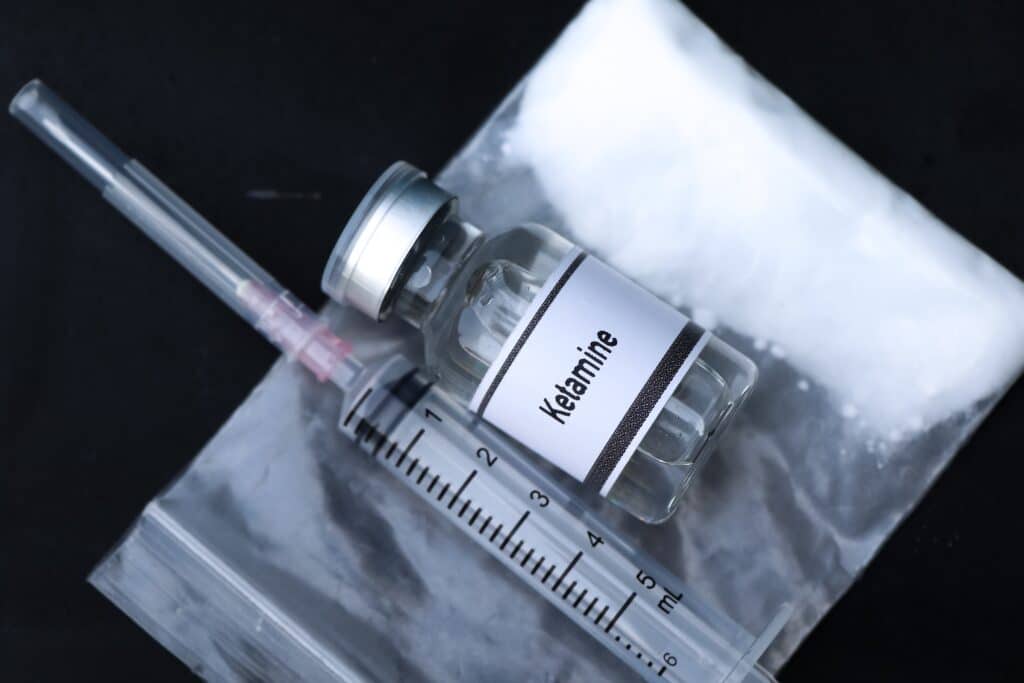
While ketamine can be used to anesthetize horses, it’s also used for small animals and humans. As a matter of fact, ketamine makes the list of essential medications for humans because it is the only anesthetic that doesn’t interfere with breathing. So, although it has been used for horses, the myth that it’s only used to treat livestock gives the implication that it’s too strong for people, or that it hasn’t been approved for human use – neither of which is true.
If you use LSD more than 7 times you are considered legally insane
Because LSD is considered to be one of the more potent hallucinogens, a belief came about that long-term use of it (typically categorized as 7 or more lifetime uses) can cause permanent brain damage and lead someone to be declared legally insane. As we know, given all the new research on LSD, this is completely untrue. Regardless, this misconception has been circulating since at least the 1980s. While sentencing guidelines for acid are unreasonably harsh compared to other controlled substances, the idea of a certain number of uses or accumulated dose of LSD is enough to declare a person mentally unstable is just absurd. A version of this story was even repeated as fact on TV’s Dragnet series in 1967, in an episode revolving around the use of LSD, shortly before it was made illegal.
Drug dealers are lacing Halloween candy with fentanyl and other drugs
The concept of drug dealing is quite simple: dealers sell drugs to make money. There is no money to be made by lacing kids candy with an expensive drug like fentanyl. Over the years, numerous claims of laced Halloween candy have made the rounds, but all of these stories were investigated and found to be completely bogus. According to Joel Best, a professor from the University of Delaware who has been studying this topic since 1983, these ideas spread “primarily among people who have no idea what [drugs] cost.”
Milk will stop a magic mushroom high
I’ve heard this many times over the years, but there is no scientific data, or even enough anecdotal reports, to back up the claim that milk will stop a mushroom trip. The presumption is that the milk would coat the lining of the stomach and slow the absorption rate of the mushrooms, but theoretically, this would only work if you drink the milk very early in your trip, before you digest the shrooms. Some small scale studies have found that benzodiazepines can stop a psychedelic trip, but not only is this not the safest method, it’s also not common for people to have benzos on hand (at least, I don’t think it is).
Man uses LSD and thinks he’s an orange
As far as drug myths go, this one is an all-time classic. When I looked it up, the story was about an anonymous man, but when it was told to me, the man in the story was Syd Barrett from Pink Floyd! But anyway, as the legend goes, someone took LSD and developed some form of permanent psychosis, forever thinking he was an orange and living in fear that his friends were going to peel him. Another version is that the man thinks he’s a glass of orange juice, rather than the whole orange, and he’s scared that someone will drink him. This story is straight up bonkers, but it’s been spread around since the 1960s and as recently as 2004-ish when I heard it.
Molly puts literal holes in your brain
Another one I heard quite often, especially when I went through my ecstasy phase, was that molly or E will put actually holes in your brain, or that you’ll end up “permanently fried” if you use it too often. While I must admit, at the end of a binge I definitely felt a bit slower mentally, and way out of focus, I can safely say the effects were NOT permanent (thankfully). However, some studies have made the claim high doses of MDMA can damage the nerve cells that contain serotonin, but these studies are from the 1980s and 90s, so they are quite dated and possibly inaccurate.
Final thoughts
Drug myths can be fun, we’ve all heard at least a couple of them over the years. But they can also be dangerous when they start to spread as fact and influence the opinions of politicians and their constituents. What are some of the interesting drug-related urban legends you heard during your youth? Drop us a line in comment section below and let’s get the conversation going!
Welcome cannabis aficionados! Thanks for making your way to Cannadelics.com, an independent news site going deep into the worlds of cannabis, psychedelics, and well beyond. We’re big on updates, so come by regularly. And get yourself signed up to the Cannadelics Weekly Newsletter, for the best in related product offerings, as well.
Related
You may like
acid
What is Candyflipping? And Can it Help Reduce Bad Trips?
Published
2 years agoon
September 10, 2023By
admin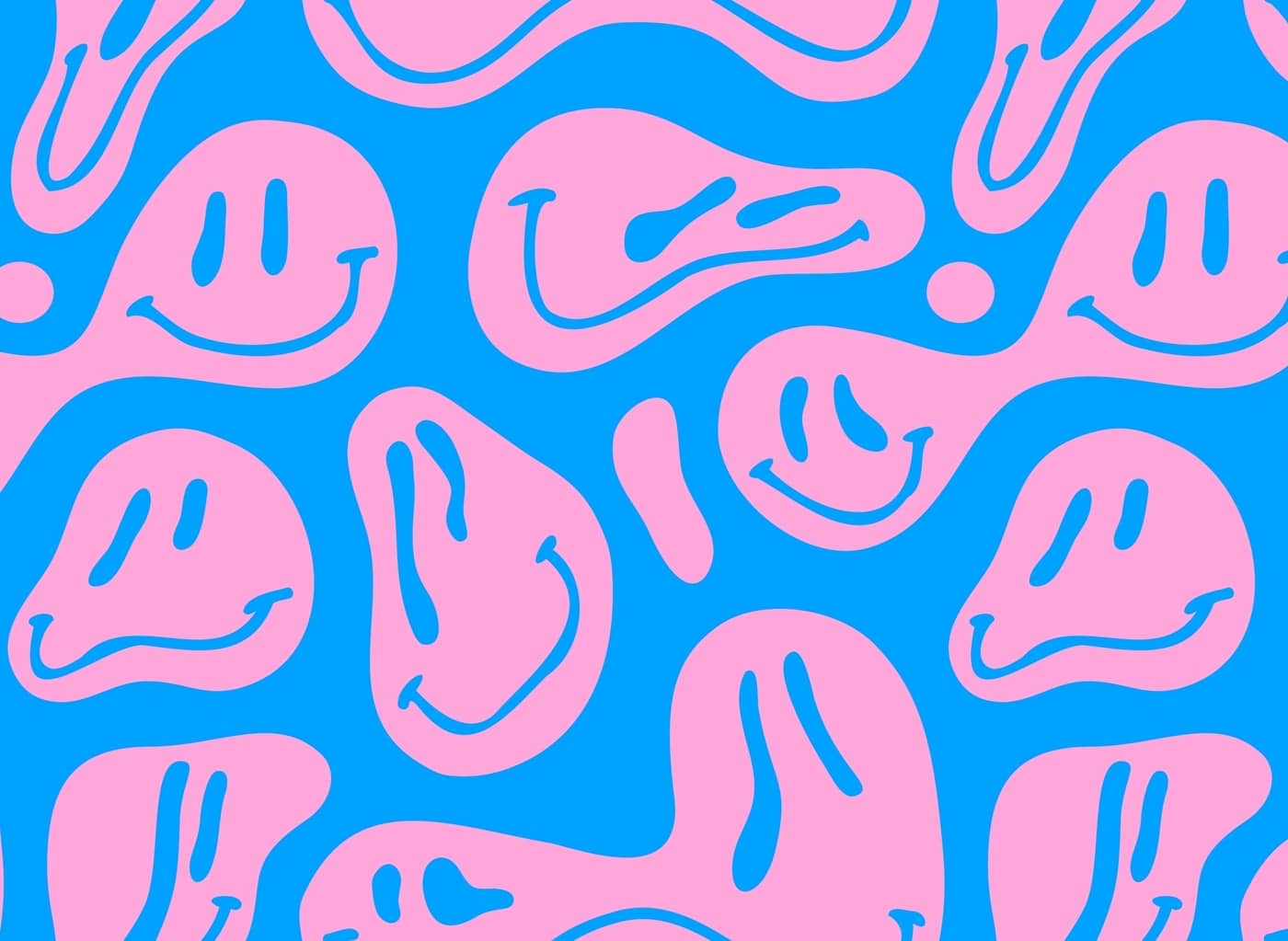
New studies indicate that a practice called “candyflipping” can help reduce bad trips, which are negative experienced caused by psychedelic use. A bad trip can hinder therapeutic and spiritual benefits, and can even be terrifying enough that a person never want to use hallucinogenic drugs again – so finding ways to minimize the risk of them happening is of utmost importance. So let’s take a closer look at how candyflipping works.
Candyflipping explained
Despite how casual it may sound, candyflipping is not just a slang term. The formal definition is “the combined administration of MDMA and LSD among recreational users, reportedly inducing synergistic acute positive mood effects,” and it’s a practice that is now being officially studied by the Liechti Lab at the University of Basel in Switzerland, one of the top psychedelic research centers in the world. The rights to all research conducted at the Liechti Lab is owned by MindMed.
Although candyflipping has been discussed in the psychonaut world, this is the first controlled study to look closer at the combination of MDMA with LSD in a clinical setting. The study was published a few months ago in the journal Nature. According to the study authors, the hypothesis was that “the co-administration of MDMA and LSD results in higher acute ‘good drug effects,’ well-being, openness, and trust and lower ‘bad drug effects’ and anxiety compared with LSD administration alone.”
During the double-blind, placebo-controlled study, 100mg of MDMA was paired with 100µg of LSD and given to twenty-four healthy participants (12 men and 12 women between the ages of 25 and 54 years). Despite how much promise researchers were expecting, they were surprised to find that the co administration of MDMA with LSD produced no significant differences compared to taking LSD alone.
So, why the discrepancy? How come users have been reporting benefits when combining MDMA with other psychedelics for years, but the study found no notable differences? Well, the answer comes down to dosage. The study only investigated 100µg of LSD, which is a relatively low dose. Many people start with 200µg or more to really get the intense kind of trip that produces hallucinations. Low doses of LSD will produce milder trips than higher doses, so it’s possible that if the study used more LSD, the positive effects of the MDMA would have been more evident.
Researchers noted: “We only tested single dose levels of both LSD and MDMA and co-administration at the same time. LSD at a dose of 100 µg mainly induces high acute positive effects and nominally less anxiety compared with a higher dose of 200 µg. Thus, we cannot exclude the possibility that MDMA may reduce negative mood effects, including anxiety, of higher LSD doses than the dose that was used in the present study.”
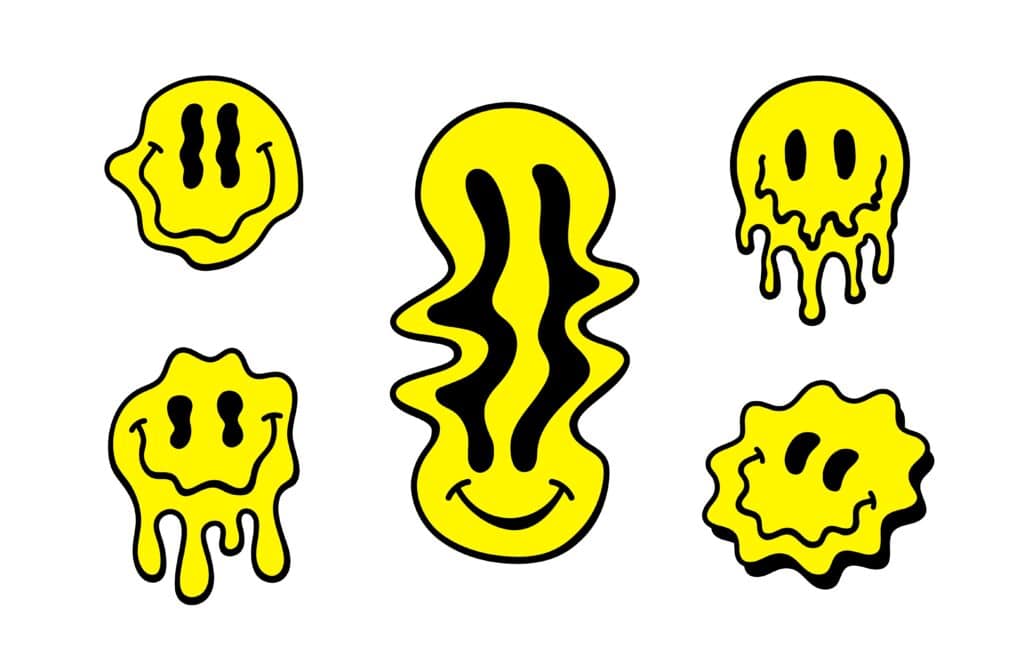
Looks like we can expect to see a follow up study in the future. And it’s worth reiterating that not only does MindMed own the rights to all this research, but they have already obtained a patent to create products that combine LSD and MDMA. I have also seen gummies and capsules that combine psilocybin with MDMA, sold on the black market of course, but they’re great products and it would be interesting to see the two paired in a future research project as well.
A bit more about MDMA
MDMA (3,4 methylenedioxymethamphetamine) is known informally as molly or ecstasy, although the former is used to denote pure MDMA, whereas ecstasy is usually cut with other drugs. MDMA appears in crystalline form or powder, which is the purest form of this drug, and ecstasy is the pressed powder tablet version. But to press the powder into a pill, it needs to be mixed with other ingredients, which can also lower production costs and are often harmful to the consumer.
Like other hallucinogens, MDMA works primarily via interaction with serotonin receptors, although the effects are quite different from other psychedelics like mushrooms and acid. Hallucinations are not typical with MDMA. In my experience, it gave me energy, made me feel really happy and connected, adventurous, it always made my social anxiety melt away, and there’s a sensory aspect to it also, where touching certain things and being touched feels amplified.
It was created back in 1912 by researchers at Merck Pharmaceutical, but it received little attention, and it wasn’t until the 1970s when the effects of this drug became better understood. American chemist Alexander Shulgin took an interest in MDMA and developed a new way to synthesize it. After testing it with a few fellow psychotherapists, it started being used therapeutically, coupled with different types of therapy treatments.
Despite being quite effective, MDMA was banned in 1985, and any further treatments or research came to a halt. It wasn’t until the last few years that interest in psychedelics ramped back up, especially for the treatment of PTSD, and numerous areas around the world are working on loosening restrictions on the drug. Last year, Colorado became the first state to legalize MDMA, and it’s been decriminalized in Oregon since 2021. Earlier this year, Australia legalized MDMA along with a handful of other psychedelics for medical use.
What is a bad trip?
Bad trip experiences are common among users of psychedelics. In a 2021 survey of 50 Norwegian psychedelic users, nearly every single one of them reported having had “frightening experiences” at least once when using hallucinogens. Aside from the often-discussed psychological side effects, physical symptoms of a bad trip can include irregular heartbeat, nausea, chills, sweating, and anxiety.
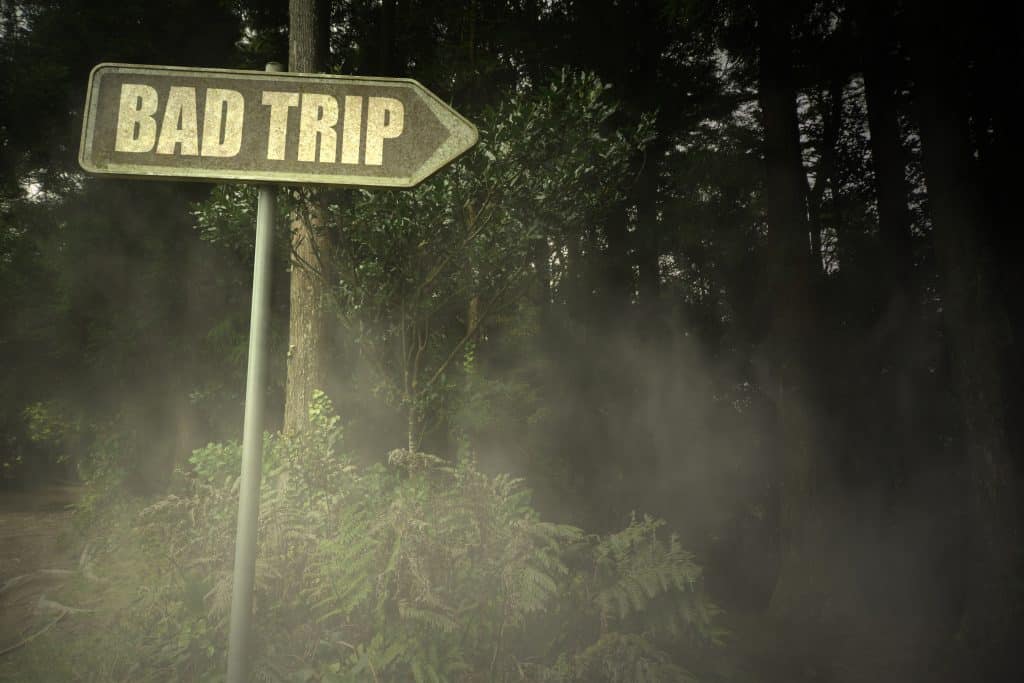
Although scary, many people find ways to make these experiences positive and transformative. It’s not uncommon for bad trips to be viewed as a type of metaphor for an issue the person needs to address in real life. Like how seeing certain things when you look at your own reflection could be an indication that you need to work on your self-esteem.
Many things can cause bad trips, from obvious things like seeing something that is actually scary and overthinking it, to inconspicuous things like catching a glimpse of yourself in the mirror. It’s important to not only engage in practices that will facilitate a good trip, but to practice the type of self-control needed to remind yourself, if you happen to end up feeling negatively about something, that you’re just high and you need to refocus your thoughts and energy.
Other ways to ensure a positive trip
Most pyschonauts agree that “set and setting” are key to having a happy and therapeutic psychedelic trip. The general consensus is that it is best to avoid unfamiliar situations, especially if you’re a novice user, and you should do everything possible to construct a relaxing and safe tripping environment BEFORE you start your adventure. That includes the environment itself, AND the people that are sharing it with you.
At best, being around bad company or people that make you uncomfortable can be awkward and unpleasant. At worst, hanging out with the wrong people while tripping can become a literal nightmare complete with terrifying hallucinations. I don’t know about you, but for me, vibes are everything. If I get bad vibes from someone when I’m sober, I’ll feel that negativity tenfold if I’m on psychedelic drugs. To make sure you have a peaceful experience, you absolutely must surround yourself with people you trust and feel completely safe around.
Psychedelic drugs are also best used on their own, or with other similar drugs at the very least, like cannabis and mushrooms. Mixing with harder drugs and alcohol can be dangerous as they can magnify disorientation and physical symptoms associated with bad trips (nausea, chills, etc.), and some believe that combining these types of substances with entheogens can lead to violent thoughts and hallucinations.
Also, it’s important to be in a positive headspace before starting your psychedelic journey. If you’re in a bad mood beforehand – feeling anxious, nervous, stressed, scared, or going through some sort of existential crisis – you might want to hold off on the psychedelics. If you’re inexperienced and grappling with dark thoughts, hallucinogens can amplify these and put you in a dangerously negative state of mind.
When planning your trip, it’s important to keep in mind that certain hallucinogens – mushrooms and LSD, for instance – can produce highs that last for up to 8 hours. Make 100 percent sure that you have enough time to complete your psychedelic journey and come down from it properly without any impending activity or responsibility. If you feel like you’re rushing and have too near of a cutoff time before getting back to reality, you could end up with a veil of dread and anxiety over your experience.
Final thoughts
Even though the study didn’t produce the results that researchers were hoping for, people who have experience with these drugs agree that candyflipping can help reduce the risk of experiencing a bad trip, especially in those who are prone to anxiety. The study authors also concluded that at different doses, their experiment may have gone more as expected.
Do you have any experience mixing MDMA with LSD? What about MDMA and other hallucinogens? If so, drop us a line in the comment section and let us know about it. We love to hear the perspectives of our readers!
Hello readers. We’re happy to have you with us at Cannadelics.com; a news source here to bring you the best in independent reporting for the growing cannabis and hallucinogen fields. Join us frequently to stay on top of everything, and subscribe to our Cannadelics Weekly Newsletter, for updates straight to your email. Check out some awesome promos for cannabis buds, smoking devices and equipment like vapes, edibles, cannabinoid compounds, amanita mushroom products, and a whole bunch more. Let’s all get stoned together!
Related
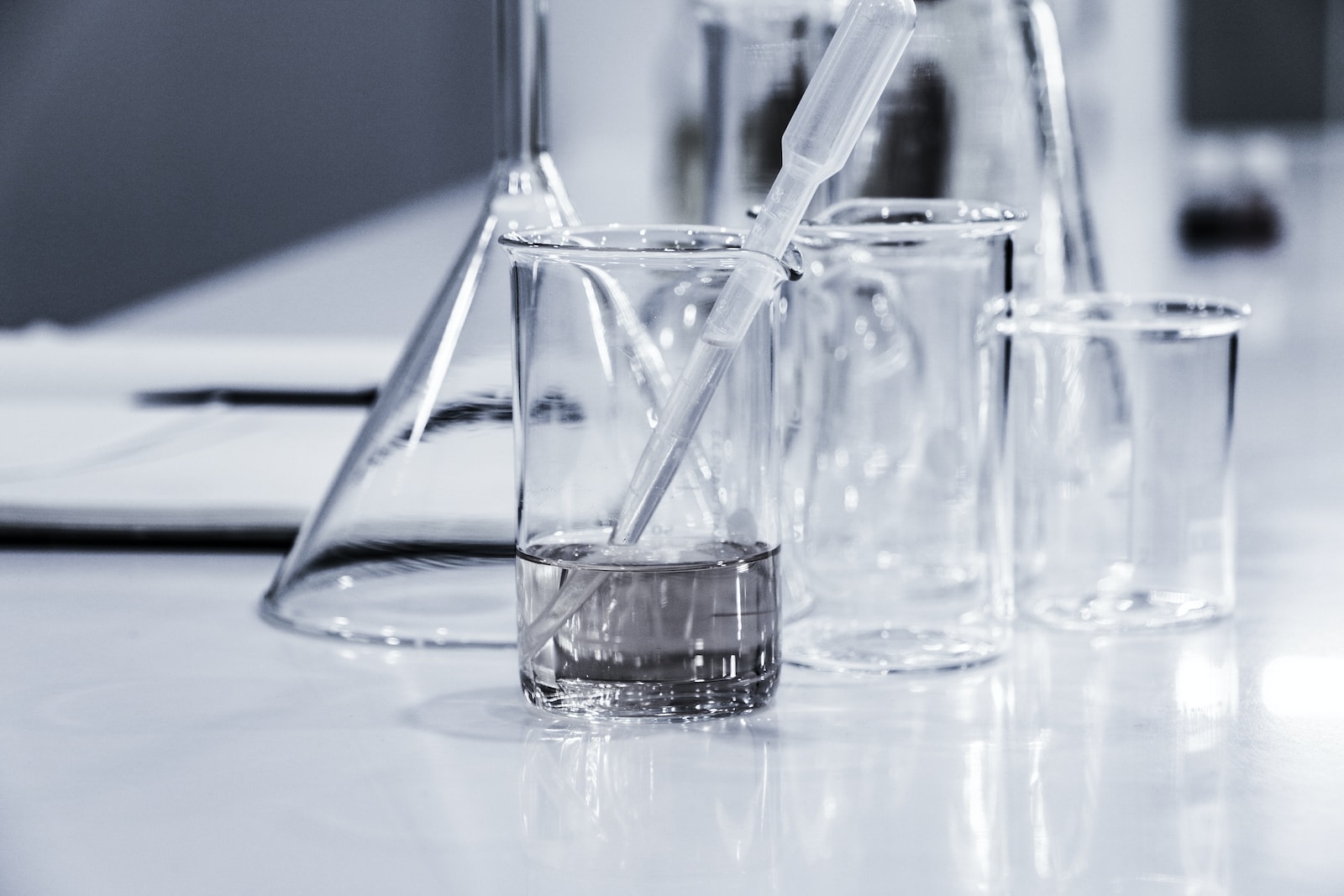
Cannabis has been around for thousands of years helping man with a variety of issues. Yes, there hasn’t been enough research to fully unlock all the potential of the plant. While marijuana is a “fun” plant allowing people to get high and chill, it has proven medical benefits recognized by the American Medical Association, British Medical Association, the US Government and other science and data based institutions.
Science says medical marijuana can help with cancer treatments, anxiety, nausea, pain and more. It is not a cure all like aspirin, but it can help in many things, more studies to be funded to unlock the potential.
A key part of marijuana is THC, a crystalline compound that is the main active ingredient of cannabis. THC provides the “high” while also delivering medical benefits. Recently, there has been discussion around TCHa, the most abundant non-psychoactive cannabinoid found in cannabis.
THCa is the acid form of THC that’s found in the raw cannabis plant. In general, cannabis produces all cannabinoids in acid form. It is one of the most abundant cannabinoid acids and is the precursor to THC. Alone, cannabinoid acids do not provide the high. Instead, these acids deliver some health benefits minus changes in consciousness.
When one consumes THC, a decarboxylation process normally takes place first. Decarboxylation is the term that’s used to describe the heating of a compound via smoking or vaping. To convert THCA into THC, raw cannabis first needs to be dried, aged, and heated via smoking or vaping. Overall, THC is a breakdown of THCA, and it doesn’t deliver psychoactive effects until it’s heated through decarboxylation.

Although research on THCA is in its infancy stage, a great deal of research findings has emerged regarding several of its medicinal benefits. After learning about THCA and its link to THC, let’s discuss the medicinal and therapeutic benefits of this compound. Different studies have been performed on THCA in recent years, which discovered the following potential benefits of the compound:
In addition, there’s also much promise in consuming THCA to treat epilepsy and seizures. In one particular study, two milligrams of THCA administered daily resulted in the subject experiencing a 90 percent seizure reduction. Similarly, when specific terpenes are combined with THCA in a cannabis strain, this combination can significantly contribute to the anti-seizure and anti-epileptic effect THCA has on patients.
RELATED: Marijuana’s THC-A As An Anti-Inflammatory And Neuro-Protectant
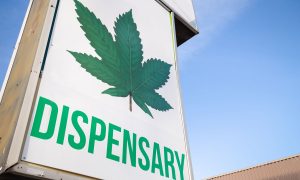
Regarding THCa’s anti-proliferative properties, one study conducted in 2013 found. in animal models and cell structures, THCA inhibited the proliferation of prostate cancer cells. Additionally, a study that was conducted one-year prior (2012) discovered THCA neutralized damage caused by oxidative neurotoxins. Although more research needs to be conducted to confirm this finding, this discovery represents the potential of consuming THCa to help treat neurodegenerative diseases caused by oxidative stress.
RELATED: How Marijuana’s THCA Can Effectively Treat Your Worst Pain
Lastly, at the University of Guelph in Ontario, Canada, Erin Rock and other scientists found that extremely low doses of THCa were able to prevent nausea in rat subjects. It was also discovered that THCA successfully synergizes with CBDA, thus, acting as a strong antiemetic compound.
While more need to be explored, the effects and properties already discovered point to the significant potential of this compound. If you’d like to consume THCA, it’s suggested to look for high-THC strains that haven’t been decarboxylated yet. You could also juice or blend raw cannabis parts such as leftover fan leaves, buds, and/or stems to reap the potential benefits.

There’s that thing, isn’t there? That all encompassing feeling. Where you feel warm inside, whilst also feeling complete. All your questions are answered, whilst more are beautifully asked. Sometimes it can be exactly what you’ve always dreamt of, and other times it can feel like the end of the world. Are we talking about love or LSD? Who knows. Well, let’s combine both of them. Today we’re going to guide you through the perfect romantic acid trip and discuss why these two things have such an intrinsic connection.
1960s USA
The 1960s in the US is often referred to as the summer of love and the flower power years. However, it was also a time of political and social unrest. But why? Well this decade was a time of great change and experimentation, particularly in the realm of art, music, and culture. There was much that birthed a powerful counterculture. The Civil Rights movement was gaining in strength but receiving much aggressive and violent backlash from the white establishment.
The Vietnam war was also in full force – a conflict that many could not understand the purpose of. Not only that, but the disparity between rich and poor, and the disconnection between old and young was a sign of the divide in society. From the ashes of unrest came many social and cultural movements that emerged during this time. They were characterized by a rejection of traditional values and an embrace of alternative lifestyles and modes of expression. The Collector writes:
“A new identity was born at the start of the counterculture movement in the late 1960s. This youth movement criticized consumerism, promoted peace, and yearned for individualism. The 1960s and ‘70s revolutionized pop culture and encouraged social reform. This 20-year period was a turning point in history that influenced future decades, and still has an impact on the present day.”
This movement brought about an influx of rock music, like the likes of Bob Dylan and Jimi Hendrix. But the youth counterculture also began exploring drugs in a new way. Cannabis was flowing freely and, of course, LSD was a new ointment. What could be a better way to break out of the mold and experience life in a new way than taking acid?
LSD & Love
At the center of this movement was the use of psychedelic drugs, particularly LSD (lysergic acid diethylamide), which was seen as a means of expanding consciousness and exploring new realms of experience. LSD was first synthesized by Swiss chemist Albert Hofmann in 1938, but it wasn’t until the 1960s that it became widely known and used as a tool for spiritual exploration and personal transformation. Origins writes:
“The CIA experimented with LSD in the 1950s for its potential use in psychological warfare… By the early 1960s, several leading universities had begun to investigate the psychological effects and health benefits of LSD. Most famously, between 1961 and 1963, Harvard professors Dr. Timothy Leary and Dr. Richard Alpert… tested Acid for its therapeutic use.”
As more of the world became aware of the substance, people began to realize its potential for other purposes. The connection between love and LSD was a central theme of the counterculture movement. Many people who experimented with acid reported experiencing profound feelings of love and interconnectedness, and saw the drug as a means of breaking down the barriers that separated individuals from one another and from the natural world.
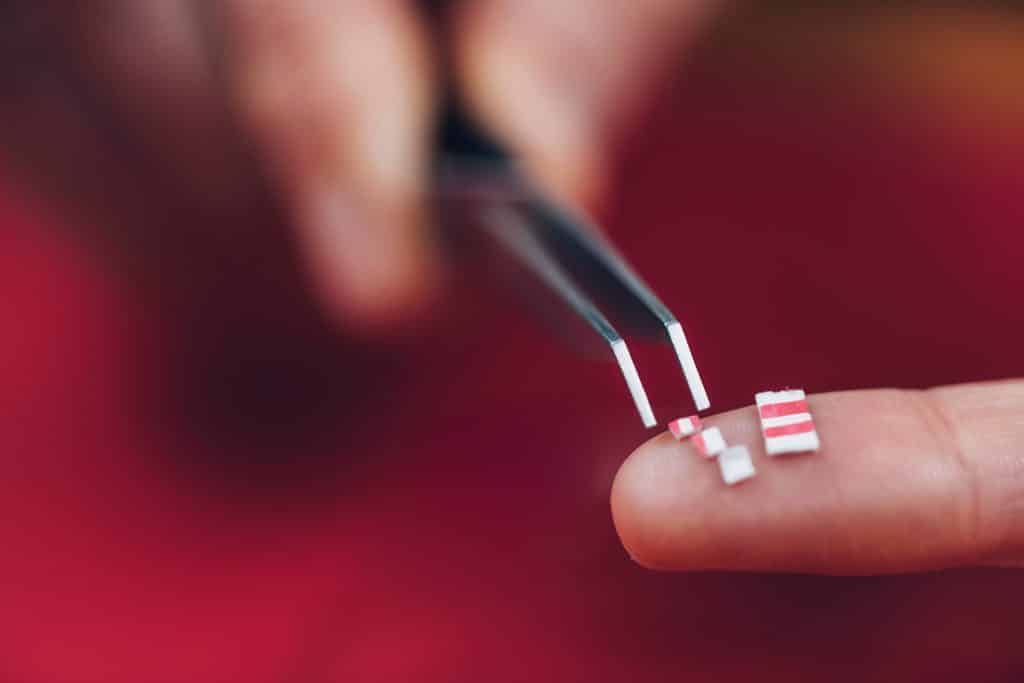
The use of LSD as a means of exploring love and consciousness was reflected in the art and music of the era, particularly in the psychedelic rock music that emerged during the mid to late 1960s. Bands like The Beatles, The Grateful Dead, and Jimi Hendrix used the substance as a means of expanding their creativity and exploring new musical horizons, while their lyrics often reflected themes of love, peace, and interconnectedness.
LSD Now
Now of course we’re no longer in the 60s, instead we’re existing in the 2020s, which has its own identity. Today, the use of LSD and other psychedelics is being revisited by researchers and medical professionals as a potential tool for treating a variety of mental health conditions, including depression, anxiety, and addiction. Nonetheless, that feeling that makes us feel love and unity with another person is still there. That is why the idea of taking hallucinogens with your loved one can be an incredible experience. Like with any substance, acid needs to be utilized in the right way, to risk any problems arising. So let’s go through the well-required steps of how to have the perfect romantic acid trip.
The Romantic Acid Trip
Before we can begin any LSD trip, we must first understand how the substance works on the body. It is this that will inform how we go about creating the perfect environment for our romantic acid trip.
How it Works
LSD is a powerful psychedelic drug that has the ability to profoundly alter perception, mood, and cognition. LSD works by affecting the serotonin system in the brain, which is responsible for regulating mood, appetite, and sleep, among other functions. When LSD is ingested, it binds to serotonin receptors in the brain, particularly the 5-HT2A receptor, which is thought to be the primary target for its effects. This binding leads to an increase in serotonin activity, which results in a range of altered perceptions and sensations.
Welcome to our site. Check out the Cannadelics Weekly Newsletter to get direct updates; and for access to awesome promos on cannabis buds, vapes & equipment, edibles, smoking paraphernalia, cannabinoid compounds, and more. We’ve got what you’re looking for; come and get it!
The effects of acid can vary widely, depending on the dosage, the individual’s mood and mindset, and the environment in which the drug is taken. The effects of the drug typically last for 6-12 hours, with the peak of the experience occurring between 2-4 hours after ingestion. However, the drug can have longer-lasting effects on mood and cognition, which can persist for several days or even weeks after use. Common effects of LSD include:
1 – Altered Perception
It can cause a profound distortion of the sense of time and space, leading to a feeling of timelessness or a sense of the dissolution of boundaries between oneself and the world.
2 – Hallucinations
it can cause the perception of colours, shapes, and patterns that are not actually present, as well as alterations in sound and music perception.
3 – Heightened Emotions
The substance can lead to intense feelings of joy, love, and interconnectedness, as well as fear, anxiety, and paranoia.
4 – Changes in Thought Patterns
Acid can lead to a loosening of normal cognitive constraints, allowing for more fluid and creative thinking, as well as a tendency towards associative and non-linear thought.
5 – Physiological Effects
LSD can cause a range of physical effects, including dilated pupils, increased heart rate and blood pressure, sweating, and tremors.
The Guide
So we’ve established how acid works on the body, and for how long, now we can start planning our romantic acid trip. Love and acid are both powerful forces but, when combined, they can move to a whole other level. Or, of course, if done incorrectly, they can open a world of despair. But don’t worry, that shouldn’t happen if you follow these steps.
1 – Research
In a sense, you’ve already done this part. But it’s always vital to educate yourself about the effects of LSD, potential risks and benefits, and how to minimise harm. Read up on harm reduction techniques and best practices for safe psychedelic use. No one wants to sound like Talk to Frank, but the aim here is to really enhance the benefits of this wonderful substance. It will also give you confidence in your experience.
2 – Partner
Next thing to do is to ask yourself the ultimate question: is this experience right for my partner and myself? This isn’t to give you doubts, it’s simply to highlight that acid is not for everyone. Worst case scenario you have a slightly unpleasant experience, it’s not the end of the world, but that isn’t always nice to add to the memories of a relationship. Ensure you feel comfortable, familiar, trusting and warmth from your partner before engaging in something as intimate as this. This doesn’t mean you both need to have tried it before, but it means you both need to rely on one another. You most likely won’t have a trip-sitter for this experience, so you’ll need to act as one for each other at different points in the journey.
3 – Set
The next step is to consider you and your partner’s mindset. This means both as a couple and individually. When taking acid, your subconscious can quite easily become your conscious, so any negative thoughts, worries or concerns you may have can materialise themselves. This can be very therapeutic in one way, but it can also be quite unpleasant. Make sure that you’re not overly angry, sad or stressed before the experience – or at least not in a way that you don’t want to face during the trip. As said, many people use LSD to face and tackle these thoughts head on and it can work a treat. But this doesn’t mean that the trip won’t be tough. This is the same when thinking about your shared mindset. Ideally taking acid should boost your love between each other, but it can also help resolve issues too. But, again, that will only work if both of you are willing.
4 – Setting
Then there’s the setting: where this is all taking place. For a romantic trip you’re going to want somewhere that oozes love and warmth for you both. This may be a beach somewhere, it could be a forest, it could simply be your living room. Don’t judge yourself – wherever you feel the most comfortable and safe with your partner is the place for you. Ambience is also crucial – choose the right music, the right candles or lighting state and even some incense.
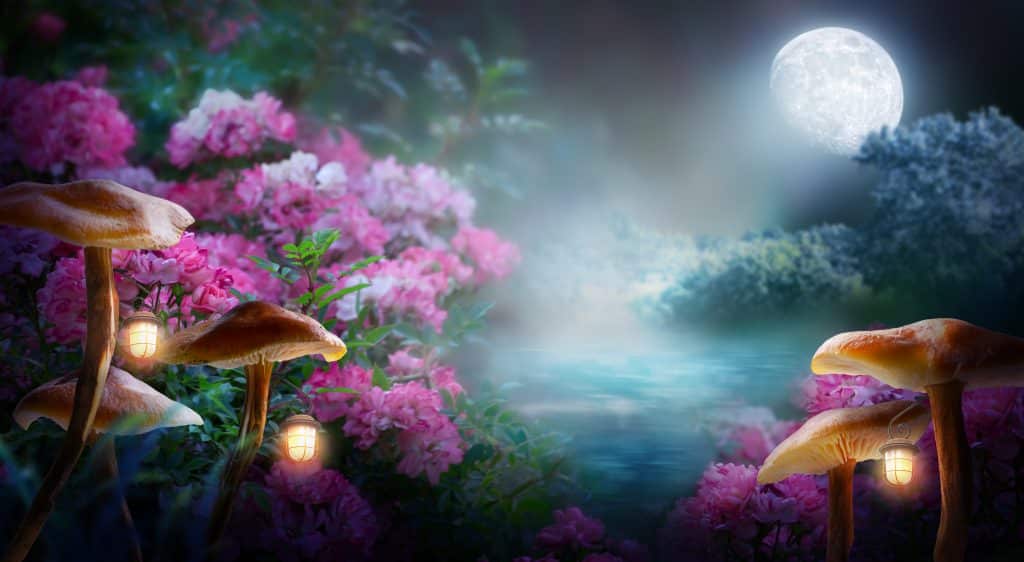
All of your senses will be heightened. Also make sure that you have easy access to food, water and even a toilet and a bath, you never know when you might need them. Whilst many people love being amongst nature when on a trip, others prefer the comfort of a sofa and a bed. Don’t judge yourselves, simply find the place that you both feel snug.
5 – Dosage
If you’re somewhat new to tripping – or you’ve only done it once or twice – start with a low dose. This allows you to test your sensitivity to the drug and assess its effects on your body and mind. Not only that, but it gives you both the time to edge yourselves into it and not completely lose yourself. Remember that LSD is a potent substance and its effects can vary widely from person to person. If you’re a bunch of psychonauts then, of course, take as much as you feel works for you.
6 – Have Fun
Last but by no means least, enjoy yourself! Love and acid is a powerful combination and it can be made even more exciting by having things to do during a romantic acid trip. Play games, watch movies, run around, make love, maybe even discuss things on your mind – whatever works for you. This is a no judgement zone and maintaining that is crucial. If you both want to sit around wearing no clothes and pretending to be pirates then so be it. When the trip comes to an end, and you’re lying in each other’s arms, you should have a sense that you’re closer than you were before the trip started. That is the beauty of LSD and love.
Thanks for joining us! Welcome to Cannadelics.com; where we work daily to bring you the very best in cannabis and psychedelics news reporting. Head our way frequently to stay in-the-loop, and sign up for the Cannadelics Weekly Newsletter, so you’re never late to get a story.
Related

This Wine Issue Is Becoming More Common

Get more for less this 420 at PurLife

Can You Order Cannabis through DoorDash?

Cannabis Enthusiast-Friendy Retreats – GanjaVacations Jamaica

The road ahead for cannabis lending in 2025

Cannara Biotech Announces Appointment of Justin Cohen to Board of Directors

Can Marijuana Help Cholesterol – The Fresh Toast

Safe Cannabis Consumption During Wildfire Season

Food Asphyxiation Is Way More Dangerous Than Cannabis

Outdoor Marijuana Grows Are Better All The Way Around

Distressed Cannabis Business Takeaways – Canna Law Blog™

United States: Alex Malyshev And Melinda Fellner Discuss The Intersection Of Tax And Cannabis In New Video Series – Part VI: Licensing (Video)

What you Need to Know

Drug Testing for Marijuana – The Joint Blog

NCIA Write About Their Equity Scholarship Program

It has been a wild news week – here’s how CBD and weed can help you relax

Cannabis, alcohol firm SNDL loses CA$372.4 million in 2022

A new April 20 cannabis contest includes a $40,000 purse

Your Go-To Source for Cannabis Logos and Designs

UArizona launches online cannabis compliance online course
Trending
-

 Cannabis News2 years ago
Cannabis News2 years agoDistressed Cannabis Business Takeaways – Canna Law Blog™
-

 One-Hit Wonders2 years ago
One-Hit Wonders2 years agoUnited States: Alex Malyshev And Melinda Fellner Discuss The Intersection Of Tax And Cannabis In New Video Series – Part VI: Licensing (Video)
-

 Cannabis 1012 years ago
Cannabis 1012 years agoWhat you Need to Know
-

 drug testing1 year ago
drug testing1 year agoDrug Testing for Marijuana – The Joint Blog
-

 Education2 years ago
Education2 years agoNCIA Write About Their Equity Scholarship Program
-

 Cannabis2 years ago
Cannabis2 years agoIt has been a wild news week – here’s how CBD and weed can help you relax
-

 Marijuana Business Daily2 years ago
Marijuana Business Daily2 years agoCannabis, alcohol firm SNDL loses CA$372.4 million in 2022
-

 California2 years ago
California2 years agoA new April 20 cannabis contest includes a $40,000 purse



